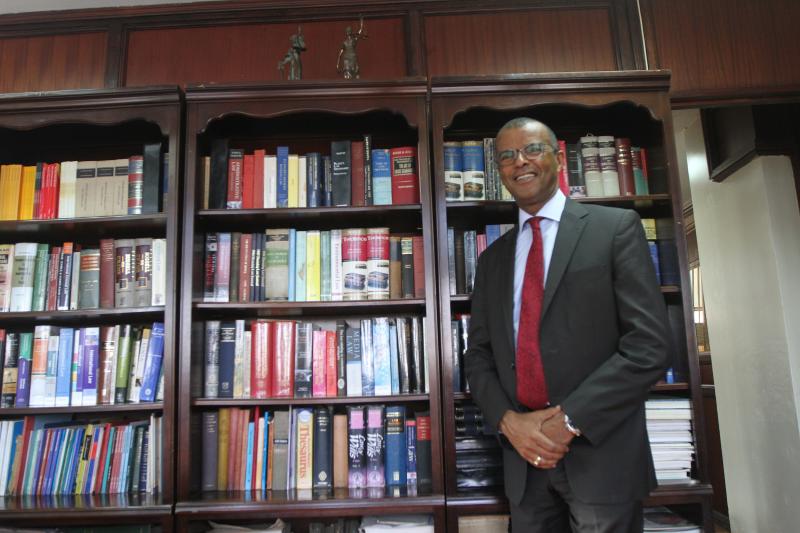
He is a hard man to figure out, and quite a study in contradictions. In 2017, he wanted to be president, then he didn’t. He appears arrogant, standoffish, a man hardened by his profession, but in his conference room, he is quite personable. And he listens to my questions, not cutting me off even once during the interview. When I requested him to clear his schedule for a sit down in a week’s time, he refused, adding that, “you don’t know what might happen between today and next week.” Instead, he asked me to get in touch with him on the day that I wanted to interview him and he made time. Sharply dressed in a blue shirt, red tie and grey slacks, he warmly greets me and settles in for the interview.
There is pride in his voice as he talks about his three children and his wife, Lady Justice Agnes Murgor. After the interview, he introduces me to his first child, Chero (short for Cherono), a lawyer who works at his firm. She’s quite engaging. The former DPP finds joy in the simple things such as the fresh crisp air in the countryside and long walks. With two of his children in university, he looks forward to family dinners where they can all reconnect.